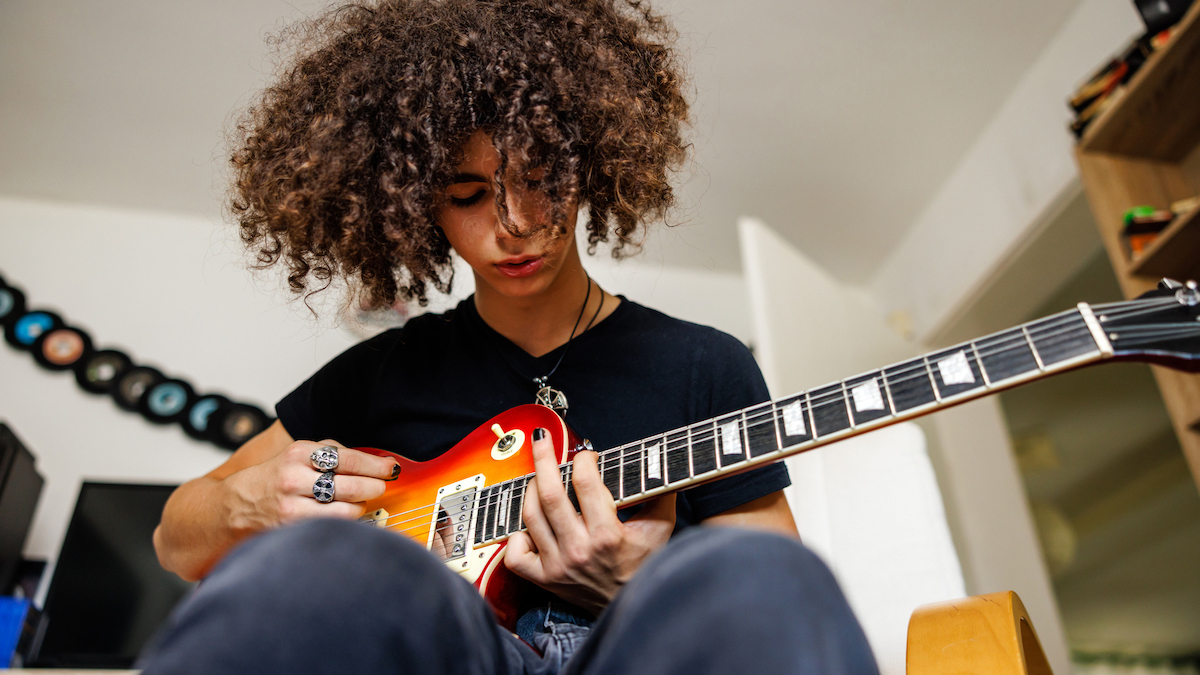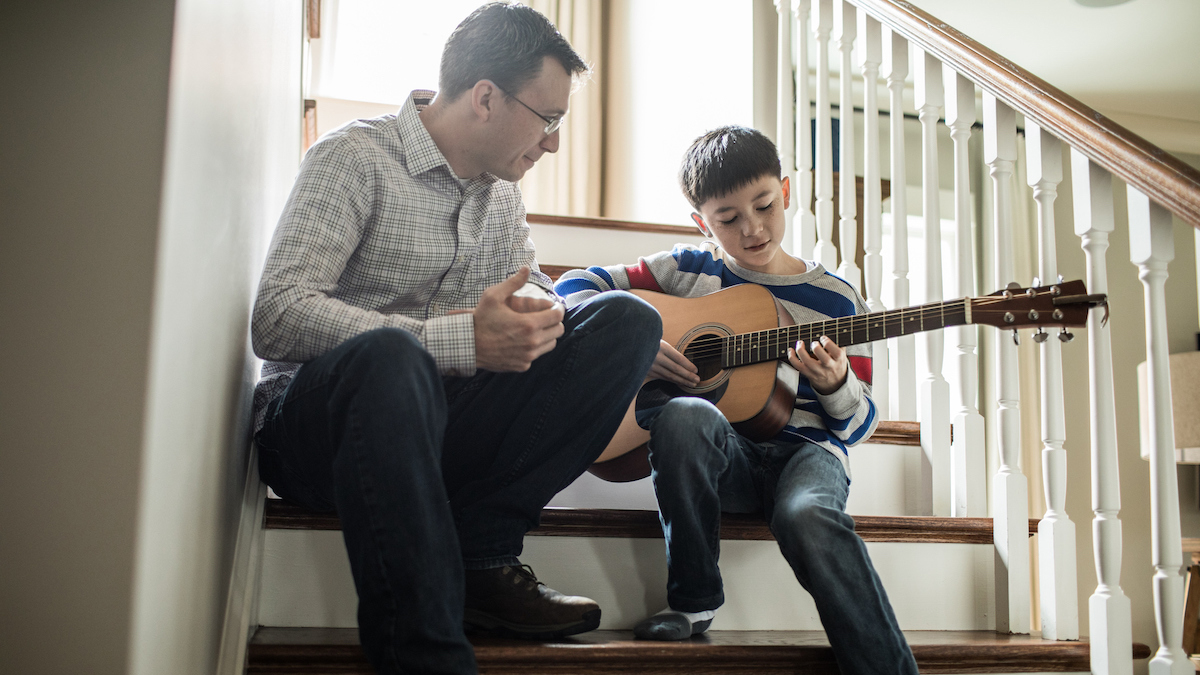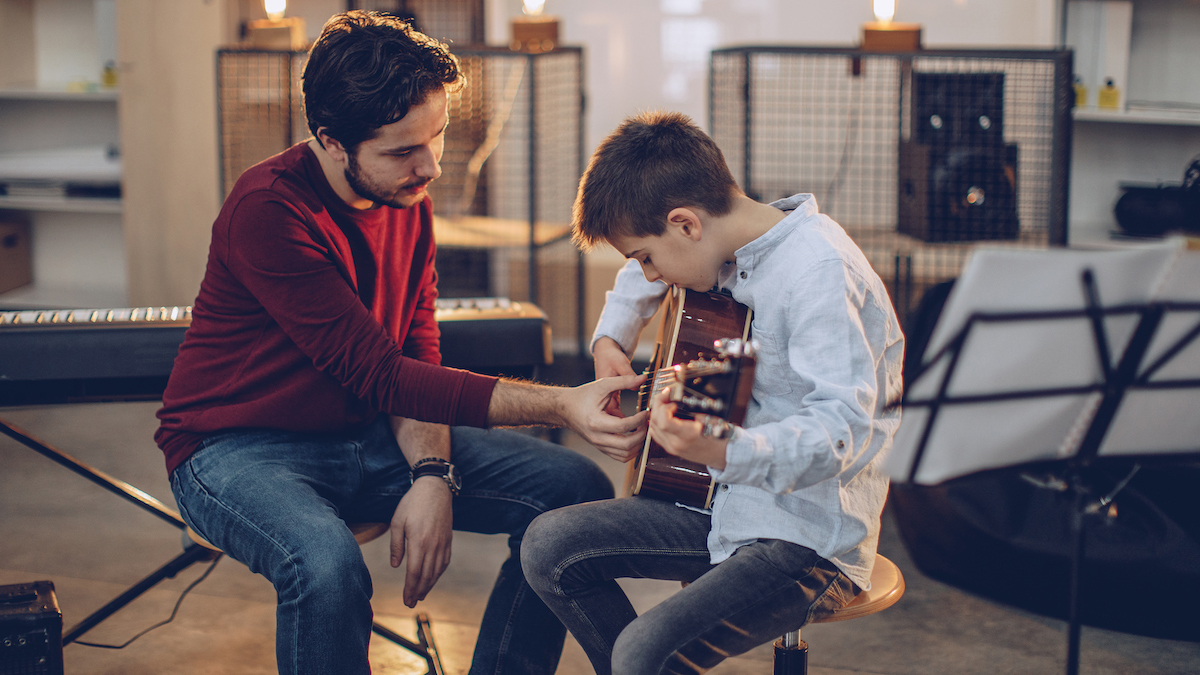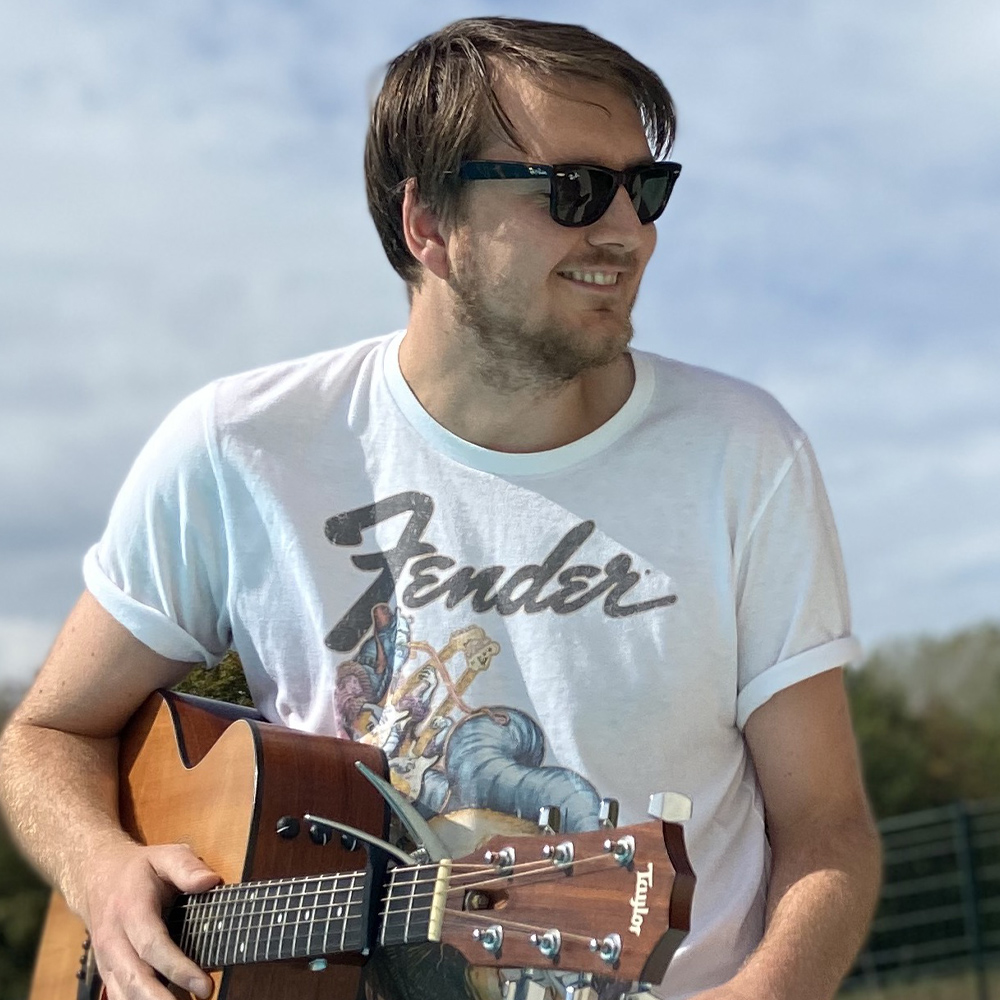10 mistakes every beginner guitarist makes
From gear choices to learning paths, these are the most common beginner guitar faux pas that every new player makes – and how you can avoid them

Learning to play the guitar can mark the start of a journey that has the potential to lead down many different paths. For most of us, it’s the beginning of a lifetime hobby – something that brings us joy, happiness and a sense of achievement. It could help you travel and see the world, and meet people you otherwise might not. It might even lead to a career in music.
However, before you go down any of these paths, it’s important that you get a few things down – practice, technique and the desire to play the guitar are crucial to it actually going anywhere.
I’ve been playing guitar for over 20 years, and in those years I’ve toured extensively, recorded in studios around the world, played on a ton of sessions, produced other musicians and taught students aged from 6 to 66. As such, I’ve met guitar players at all stages of their journey; from those picking up the instrument for the first time, to fully-fledged pros, and it’s incredible how often certain things crop up that can slow a player’s progress down, particularly when it comes to beginners. When I speak to other tutors and producers they often remark on the same thing.
These mistakes are easy to make for beginner guitarists. Even more experienced players can fall into some of these traps too, so if you do, don’t beat yourself up. For each mistake, there’s usually a simple and quick fix that can set you back on the right path. It’s also important to note that each player’s journey is unique, so if you know that something is working for you and you’re making progress, trust your instincts.
1. Trying to run before you can walk
Yes, that old saying applies to playing the guitar. So often players want to learn flashy solos without covering the basics first. To be fair, that’s understandable – the solo from Beat It is undeniably cooler than the C major scale.
However, by covering the basics first, you’re arming yourself with the skill, knowledge and dexterity that will make these more difficult pieces easier later on down the line. Things will also make more sense, so you can then integrate what you learn from other players into your own playing more seamlessly and naturally.
Whilst learning your first sets of chords and scales, you’re getting to know the instrument – how to fret notes properly, how to hold your guitar etc. Don’t skip past this bit in favor of the more ‘fun’ bits, as it really is crucial. It’s as simple as this: cover and master the basics and you’ll become a much better guitarist than if you don’t.
Get The Pick Newsletter
All the latest guitar news, interviews, lessons, reviews, deals and more, direct to your inbox!
2. Disregarding certain genres of music
My biggest singular piece of advice to any musician starting out is to listen to as much different music as possible. You might have discovered and garnered an interest in the guitar through something like rock or punk, and it’s cool to delve further into that world. However, keeping an open mind to other styles of music will help you develop more as a player and musician.
For example, on the surface, pop music or drum’n’bass might not be your thing, but you’ll hear some incredible chord sequences and melodies in many pop songs. By listening to and absorbing some of these, you can then incorporate bits into your own style of playing – even if that’s a completely different style. Likewise, you can listen to some of the wild DnB beats and weave those rhythms into your metal guitar playing for something completely different, but still heavy.
In the world of rock guitar, you can come up with a Zeppelin-style riff, and it will sound cool, but it will be instantly recognizable as Led Zeppelin-influenced. On the other hand, borrow a three or four chord sequence from one of the songs from something like the Frozen movie (I’m making a point here), change the key and stick it in your rock song, and you’ve suddenly got an interesting base for a melody or solo that’s still in keeping with your music, but is more attention-grabbing than your standard rock chord sequences. The lesson here is essentially: be open to all types of music.

3. Becoming gear obsessed
As guitar players, there’s usually always something new we want (or claim we need). Whether that’s a new pedal, a vintage guitar or a different kind of amp, there’s always something to distract us from what’s actually important – playing.
New gear can inspire you to play more, and it can even take your playing in different directions, but it’s important not to become more focused on that than you are on actually playing the instrument itself.
A new pedal might sound cool, but it won’t make your fretting any cleaner. A vintage guitar might have some amazing pickups fitted, but that doesn’t matter if your playing is sloppy. A different kind of amp will no doubt unlock some new tones, but what good are they if you don’t have your scales locked down? Hopefully you get the point I’m making – new gear is great, but don’t let it distract you from mastering the art of guitar playing.
The only thing you really need to focus on at this early stage is arming yourself with the right beginner acoustic guitar or beginner electric guitar.
4. Not playing along to something
Whether it’s music, backing tracks or just the good old fashioned click of a metronome, playing along to something can really help improve timing.
If you play without something that has a steady beat, you can trick yourself that you’re getting better, but you might not be. Say if you’re trying to master chord changes and you think you’ve got it down – you play one chord per bar and you’re keeping the tempo in your head. It’s easy to slow down subconsciously to make that change easier. Try it with a click to make sure that you’ve really got the change down. Start super slow and gradually build up the tempo. It doesn’t have to be all the time, but using a metronome should be a regular part of your practice.
If you want something more interesting, there are tons of free drum tracks or backing tracks available online so you’re not just playing to a click. Some of the backing tracks can give you a style of music that you might not normally play to as well, which can be a nice change and present new challenges.
5. Ignoring music theory completely
I’m not saying you need your Grade 5 theory before you pluck a note, but reading up a bit on music theory as you’re learning the guitar will definitely help. It isn’t essential, but many guitarists find that music theory helps unlock things earlier on in their playing and helps things just make a bit more sense.
Even if you’re just learning what keys are, or what a major and minor scale is, you’re arming yourself with a bit of knowledge that can help make your guitar playing journey that little bit easier. Learning different scales and what the relationship between the notes means can enhance your understanding of music, as well as your dexterity, plus they can make for great warm-up exercises.

6. Relying solely on an electronic tuner
This might be quite an old-school take given how reliable and affordable tuners are nowadays, but I’m a big believer in being able to tune by ear.
Electronic guitar tuners are great – I use them all the time, and I’d say that they’re an essential accessory. However, it’s definitely worth learning how to tune by either using the fifth fret method, or harmonics. Not only will this save your bacon if the battery in your tuner goes, but it’s also great for training your ear. Developing your ear – that is, learning to identify notes, intervals and whether something is sharp or flat can help you learn songs without the need for videos or TAB (it’s also a great party trick!).
After doing it this way for many years, some players find that they can tune automatically by ear without harmonics or fretting making it much quicker and easier to tune up.
7. Believing that all TABs are created equal
There are some great free resources out there, but there are also some terrible ones. Tablature or TABs are an easy way of reading guitar music, and there are tons of websites out there that show you how to play nearly every song imaginable. Google ‘Your Favourite Song TAB’ and chances are, it will come up.
This sounds great, right? Yes, and no. Whilst there are some sites that show you how to play songs correctly, there are just as many that show you the wrong way. There are loads of TABs written by someone that might not be much further along in their playing than you, giving you the wrong advice. I’ve seen it a number of times – someone has painstakingly followed TABs for a song, only to come out at the other end with something that sounds nothing like it should.
Try and opt for highly rated TABs, or use a reliable source. Online guitar lesson websites, like Guitareo often have a wide range of material, and it tends to be pretty accurate.
8. Ignoring technique
Good and proper technique will make you a better player, enable you to play faster, and fret chords more cleanly. Just as importantly, it also prevents both short and long term injuries.
There’s nothing wrong with teaching yourself to play the guitar; that’s how loads of people start out and there are loads of advantages to doing it this way. However, without any sort of one-to-one feedback, you can form bad habits in terms of technique eg. not fretting properly, angling your arm or wrist awkwardly etc. You might be able to play like this, but in the long run, you could be slowing yourself down, or even damaging your tendons or muscles.
There are plenty of websites and YouTube videos that showcase good guitar technique so it’s easy to check that you’re on the right track. Of course, if you’re having lessons, then this is something your teacher will go through with you.

9. Keeping old strings on
When you’re just starting out playing the guitar, you naturally want to concentrate on learning. The thought of guitar maintenance seems like something you’d do much later on down the line. However, small bits of maintenance can keep your instrument feeling and sounding fresh.
The easiest way to keep your guitar in tip-top condition is to change the strings. How often you do this depends on how much and how hard you play, but you’ll want to think about changing them after a couple of months or so.
You might not notice it, but your strings will start to sound more lifeless as bits of dead skin and dirt weave their way into the string windings. When you put a new set on, you’ll notice straight away that they sound better – more top end, more dynamics and they feel much smoother.
The thought of changing your own strings might seem daunting at first, but there are loads of videos available showing you what to do, step-by-step. You can take it to a guitar store and they’ll do it for you, but it’s definitely a valuable skill to learn!
10. Playing only what you’re told to play
If you’re taking lessons, your teacher will likely tell you what to play, and it’s wise to listen to them. However, it’s worth finding the stuff you really want to play – take a crack at it, or ask your teacher to give you an arrangement. Playing the music you really want to play might not immediately get you closer to completing your grades (if that’s the path you’re taking), but it definitely keeps things fun and helps you stay interested in playing.
You can also create some cool unstructured practice by simply putting on some of your favourite music and trying to find the notes on your guitar. Without any TABs or videos, see if you can find the root note, or figure out what chords they’re playing – doing this can help train your ear, but also just keep things light-hearted and fun. After all, that’s what guitar playing is supposed to be!
After spending a decade in music retail, I’m now a freelance writer for Guitar World, MusicRadar, Guitar Player and Reverb, specialising in electric and acoustic guitars, bass, and almost anything else you can make a tune with. When my head’s not buried in the best of modern and vintage gear, I run a small company helping musicians with songwriting, production and performance, and I play bass in an alt-rock band.











